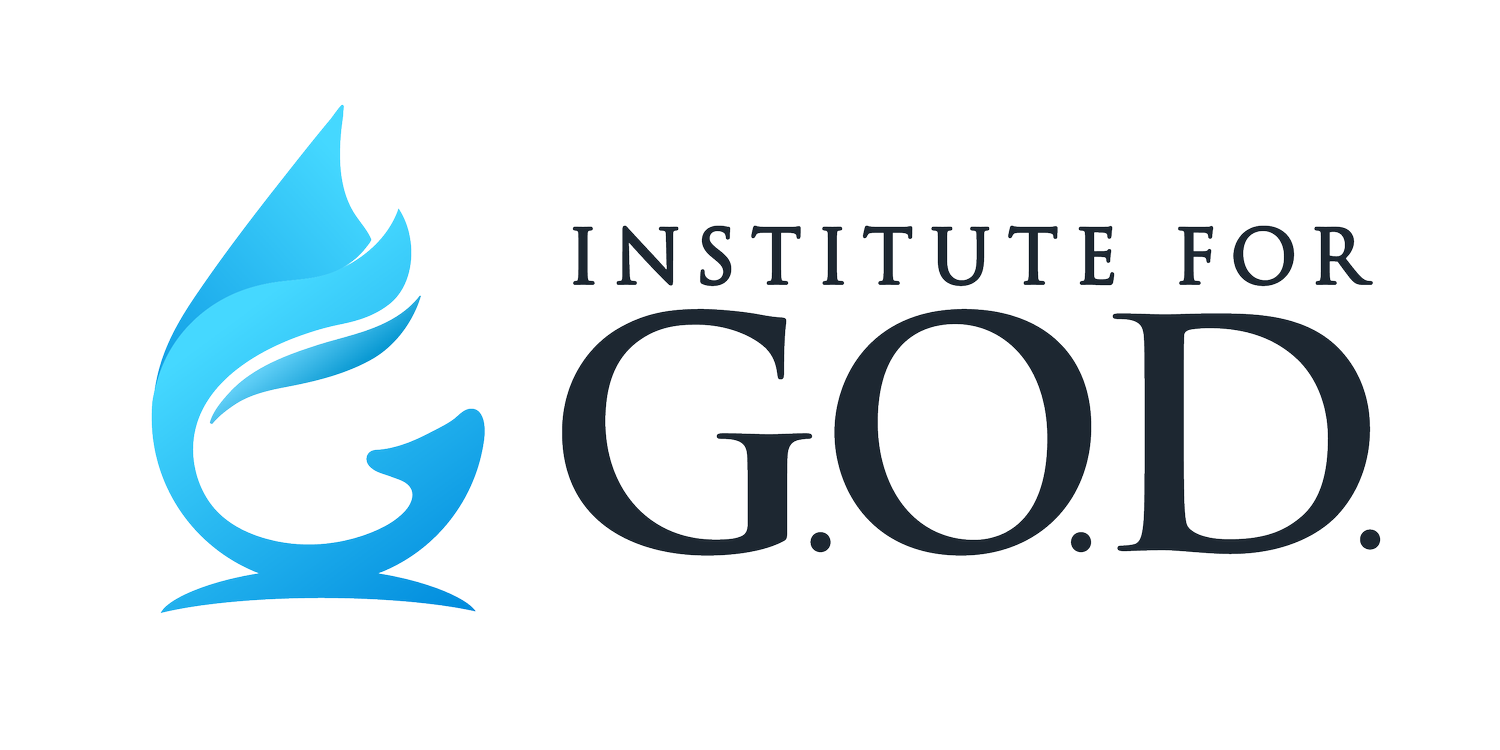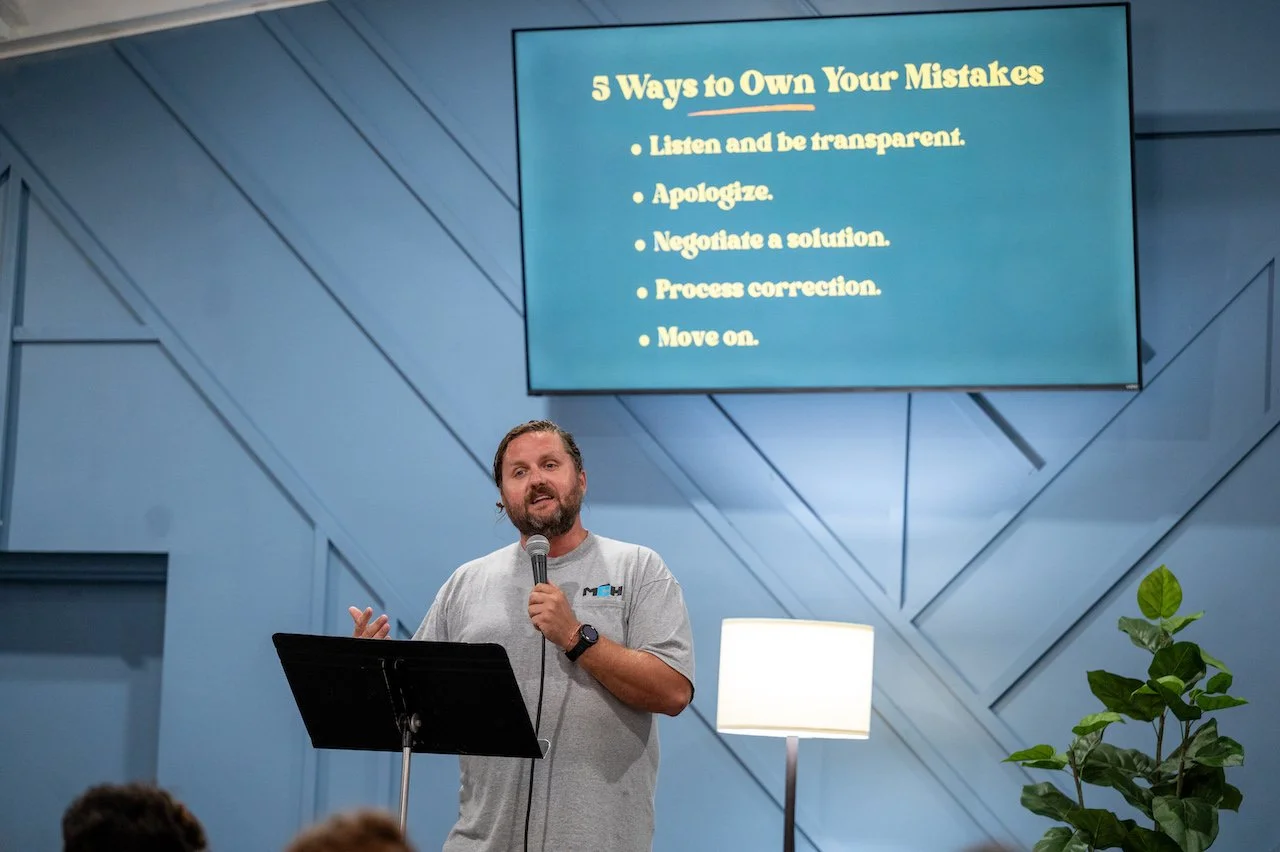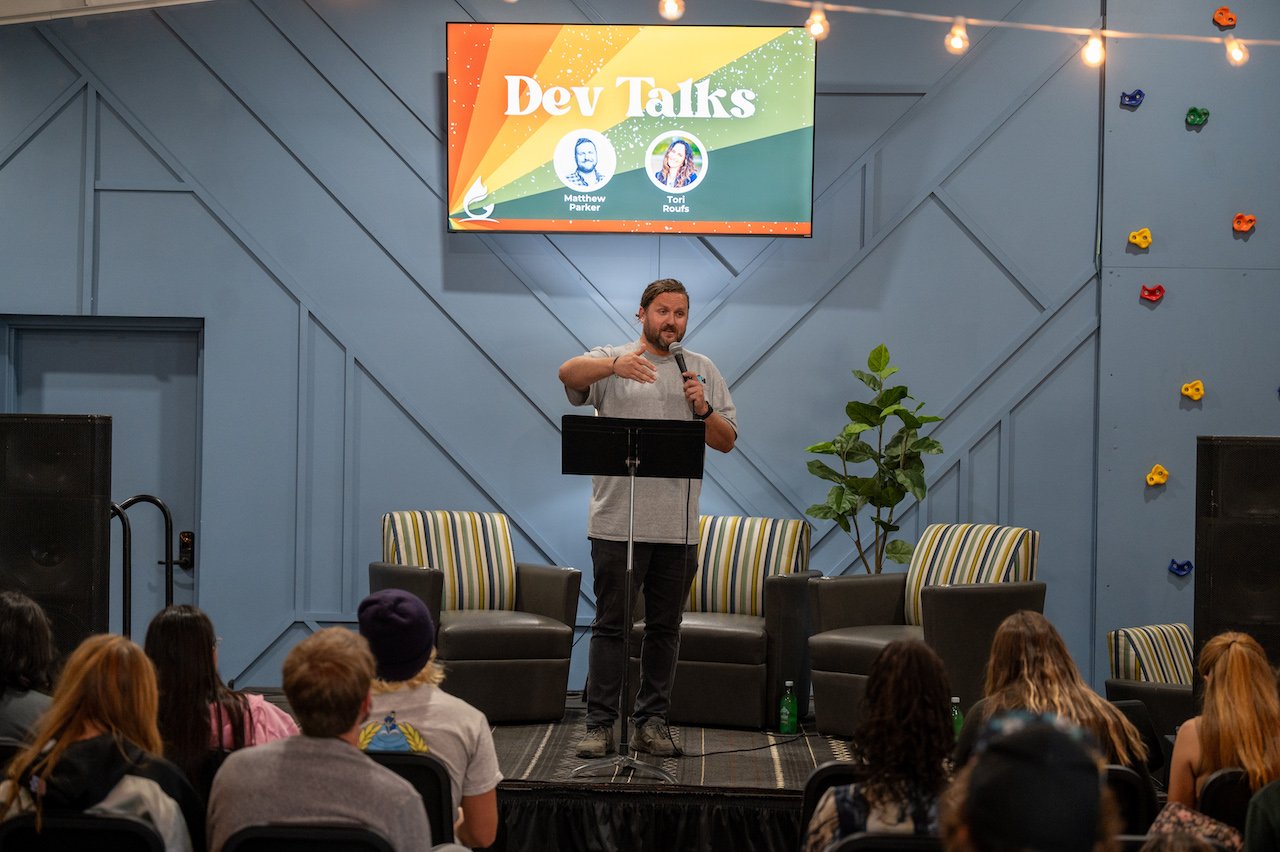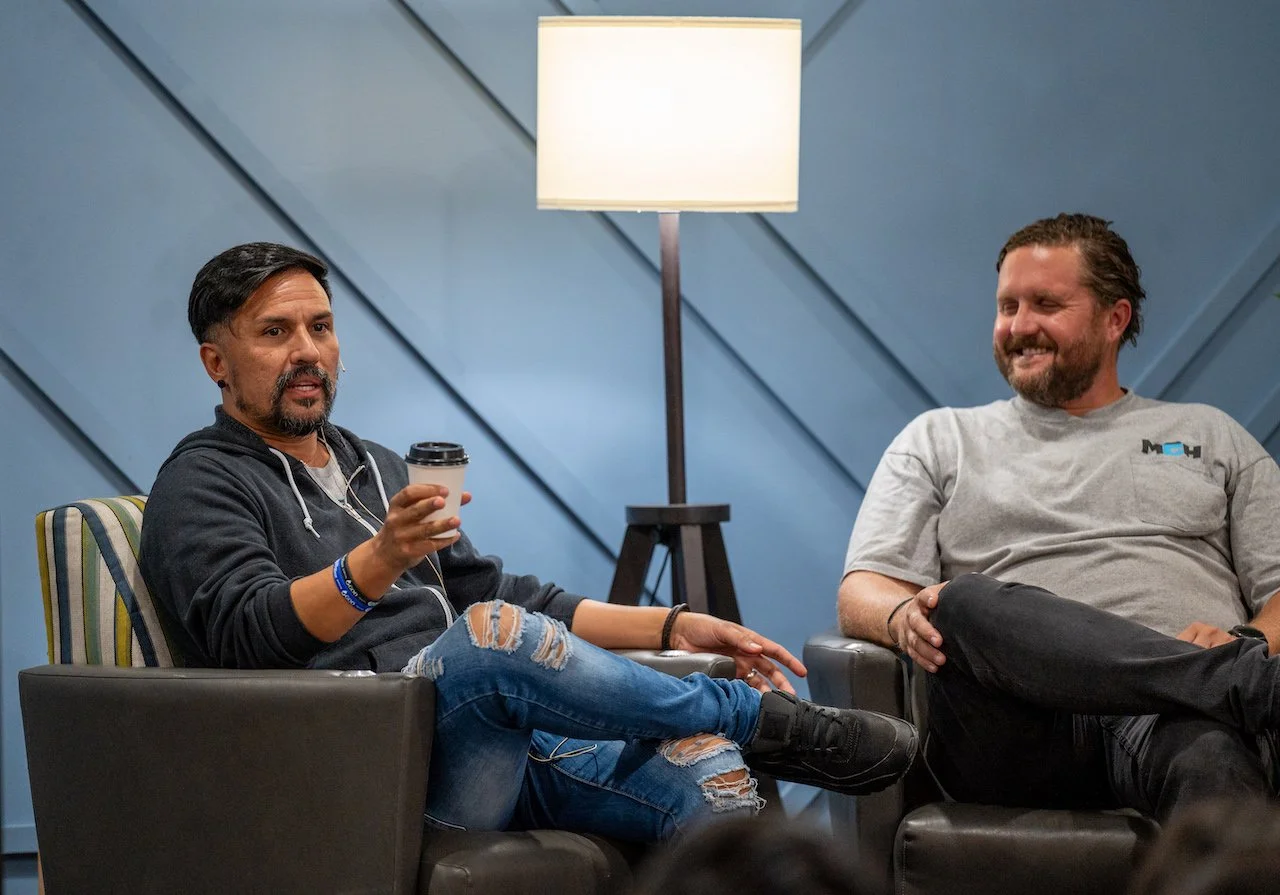DevTalks Take 1: Owning Your Mistakes and Your Time - Workplace Wisdom
Institute students participating in the innovative ProDev program gain access to “DevTalks” - informational seminars to help them excel in the workplace.
September 20th was our first “DevTalks” of the 23-24 Academic Year.
“DevTalks” are a part of the educational component of The Institute’s Professional Development (ProDev) program, blending biblical education with workplace competency. DevTalks feature various professionals, usually Institute alum, who share practical tips with college students, TedTalks style, followed by a Q&A with Institute President (and entrepreneur and architect of the ProDev program) Gregg Garner. Yesterday’s DevTalks featured Matthew Parker, Director of Business Development at MCH Nashville, and Tori Roufs, Senior Manager at NOVA Birth Services.
Matthew Parker shared “5 Ways to Own Your Mistakes,” and Tori Roufs shared “3 Tips to Organize Your Week.” (Tori is also a mother of six - she knows something about this.)
Matthew Parker, an Institute alum, shares the importance of owning mistakes, something he’s learned well in the construction industry.
Matthew Parker's Journey in Owning Mistakes
Imagine this scenario: you're fresh out of college, excited about your first job, but then, bam! You make a colossal mistake that shakes your confidence. That's where Matthew Parker's wisdom comes into play.
You’re Not Always Right
His first piece of advice was fundamental – "Recognize that you're not always right." Striving to be infallible drains your energy and strains your working relationships. Instead, he advocated for honesty and transparency, qualities that are like a breath of fresh air in the professional world.
Matthew recounted a story from his early career, a job site meeting that could have gone south due to defensiveness. However, by choosing to listen, de-escalate, and uncover the root of the issue, he managed to salvage the situation and nurture a valuable relationship.
2. Offer a Genuine Apology
According to Matthew, the next step in owning mistakes is to offer a genuine apology when necessary. Apologies can be complex, especially when you feel wronged as well. However, he emphasized the importance of extending an apology even when you believe you're owed one, citing its significance in promoting reconciliation.
To illustrate this point, Matthew shared a story involving subcontractors, safety gear, and an irate foreman. Despite feeling wronged, he chose to apologize, diffusing the tension and facilitating a constructive resolution.
3. Negotiate a Feasible Solution
Negotiation skills were another focal point of Matthew's presentation. He encouraged students to work collaboratively, finding solutions that may not be perfect but are acceptable to all parties involved. He shared an anecdote about a meeting with property owners that resulted in a new contract addition, highlighting the value of teamwork.
Learning to own one’s mistakes is a great example of the biblical wisdom that should pervade the workplace. Too often, we lack a venue to discuss the important biblical principles for our work. DevTalks provides it to Institute students regularly.
4. Make Changes so it Doesn’t Happen Again
The next piece of advice revolved around processing corrections. Matthew stressed the importance of implementing changes to prevent recurring mistakes and effectively communicating these changes to reinforce one's commitment to growth. He recounted a memorable incident involving a sewer tap mishap at a high-end home project.
5. Move On
Lastly, Matthew advised against dwelling on mistakes. Feeling like a failure or harboring frustration is unproductive. Instead, he urged students to focus on making amends and moving forward. He shared an experience from his early days on a Legacy job, emphasizing the importance of not jeopardizing relationships due to an inflated sense of self-righteousness.
Biblical Principles – Timeless Wisdom
To anchor his advice in timeless wisdom, Matthew referenced two biblical verses. The first, Exodus 20:16, reads, "You shall not bear false witness against your neighbor." This verse underscores the importance of truthfulness and transparency in our interactions with others.
The second verse, Proverbs 28:13, states, "No one who conceals transgressions will prosper, but one who confesses and forsakes them will obtain mercy." This verse highlights the power of confession and seeking forgiveness as a path to reconciliation and growth, principles that transcend generations.
DevTalks helps students see they’re not alone in the journey to adulting in the workplace. We connect students with experts so that they can not only do a good job, but thrive.
Tori Roufs' Practical Tips for Organizing Your Week
Now, let's transition to Tori Roufs' segment, where she provided practical tips for effective time management and organization.
Tori's first tip was to utilize a calendar rigorously. She advised students to input their work and class schedules, appointments, and commitments, effectively creating a comprehensive overview of their week.
Tori suggested the old-school practice of writing out one's schedule on paper to complement digital calendars. This tactile approach can enhance awareness and organization.
Tori's final tip was to fill in tasks alongside scheduled events and to conclude the process by praying over the week. This holistic approach ensures efficient time use, optimal mental readiness for essential tasks, and minimizing the risk of double-booking or showing up unprepared.
Tori Roufs was a part of The Institute’s first class of students in 2004. She’s since been an important contributor to the success of NOVA Birth Services, a business resulting from the Childbirth Education Program (now Occupational Focus in Maternal Health) offered at The Institute.
Making the Most of Each Day
Tori skillfully connected her organizational tips to timeless values and principles. By efficiently managing their time, students commit to making the most of each day—a concept deeply rooted in biblical teachings.
The Bible consistently emphasizes the significance of time and the calendar, reminding us of the importance of stewardship. Tori encouraged students to practice these organizational skills while they have the opportunity, as it aligns with the concept of responsible stewardship of time.
The conclusion is important! At the end of each of our DevTalks, Institute President Gregg Garner engages with the speakers and students to answer questions and ‘connect the dots’ to the student experience.
Conclusion – An Enlightening Q&A with Gregg Garner
Before we wrap up, let's not forget the engaging Q&A session with Institute for GOD President Gregg Garner. This session allowed students to delve deeper into the intersection of faith and career, adding an extra layer of insight to an already enriching event.
Dev Talks at The Institute for GOD was a day of enlightenment, education, and growth. It demonstrated that wisdom and faith can harmoniously guide one's journey through the collegiate and professional world. Whether navigating workplace challenges or organizing your week effectively, remember that the blend of practical wisdom and timeless values can guide you in pursuing success and fulfillment.
Stay tuned for future Dev Talks events – you won't want to miss them!






